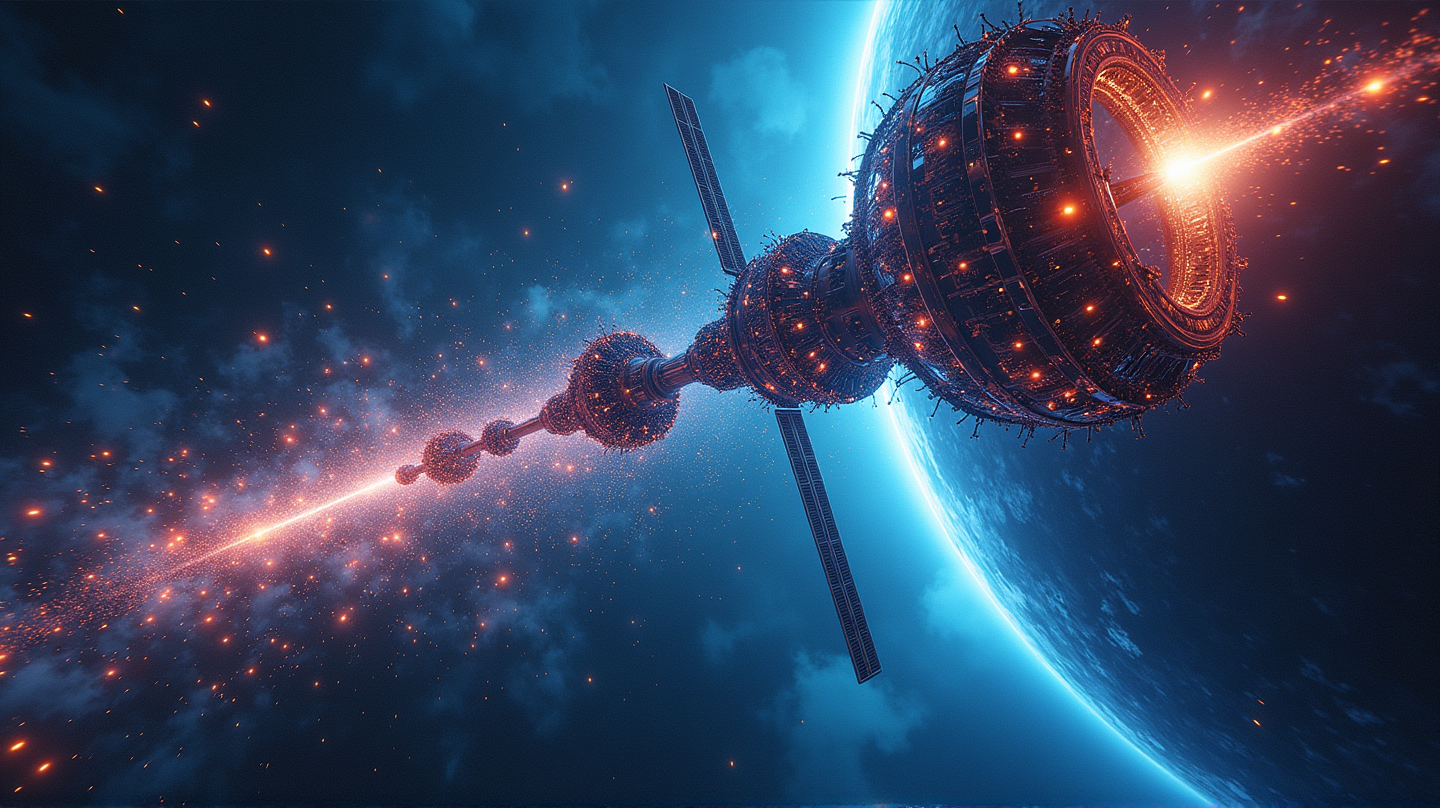Space Revolution Disrupts TechCrunch 2025
TechCrunch Disrupt 2025 showcased bold space tech innovations, revolutionizing the industry with AI and sustainable solutions.

In the heart of San Francisco at Moscone West, TechCrunch Disrupt 2025 captivated over 10,000 attendees from 130 countries, spotlighting a groundbreaking fusion of artificial intelligence and space technology. From October 27 to 29, this premier startup exhibition delved into the future of these intertwined industries, showcasing bold innovations that redefined space exploration and technology’s role in our universe. According to 매일경제, this event marked a pivotal shift towards a private-led space economy.
A New Space Odyssey
TechCrunch 2025 embraced the cosmos, with the spotlight on startups like Astrum Drive, Charter Space, and Endox — key players in “Startup Battlefield 200.” These companies are not just portraying theories but actively transforming space industries with ingenious approaches. Unlike traditional rocketry, Astrum Drive is at the forefront with its fuel-less, electric-based space propellant, poised to revolutionize satellite operations and deep space missions. The application of the “heat drive principle,” originally proposed by Einstein and Zillard, has entered practical, operable stages, promising a new era of cost-efficient space exploration.
Charter Space: A Fintech Fusion
Nestled in El Segundo, California, Charter Space is illuminating the path forward with its Yubic platform. This integrated platform manages the complete lifecycle of space projects, combining satellite and spacecraft processes into one seamless system. Their “space asset insurance” has sparked interest by automating complex satellite insurance procedures, marking the birth of “space fintech.” Charter Space’s innovation lies in its ability to seamlessly blend space project data, paving the way for real-time insurance and regulatory processes.
Endox and the Dawn of Physical AI
Endox, hailing from Massachusetts, is taking AI to new heights by developing physical AI robotic systems capable of autonomous operations in real-world environments. With sensor fusion and modular robot design, their technology is crafting the future of defense, aerospace, and heavy industries, redefining autonomy and automation at the intersection of AI and physical capabilities.
The Private-Led Space Economy
This year’s Disrupt wasn’t just a tech exhibition; it was a declaration of space technology’s commercial revolution. As Celeste Ford of Stella Ventures emphasized, “AI and capital are opening a new trajectory.” Significant participation from private aerospace giants, such as NASA and Barda Space Industries, further amplified this shift, introducing futuristic visions like orbital computing and autonomous manufacturing.
Korean Startups Shine Bright
Korea’s tech prowess was prominently displayed, with Aerobility, Visual Shin, and Jejudu selected for “Startup Battlefield 200,” a first in the event’s history. These innovations range from electric vertical aircraft to AI-driven learning platforms, showcasing Korea’s ascent in the global tech ecosystem. Celebrating its seventh participation since 2018, KOTRA praised the country’s technological evolution, asserting Korea’s pivotal role in global innovation.
Join the momentum with the Miracle Letter, a global trend newsletter read by 78,000 people. Subscribe now and stay informed on groundbreaking innovations three times a week!

